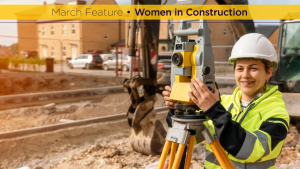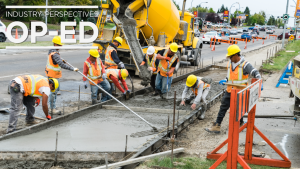British Columbia Construction Association (BCCA) president Chris Atchison says while there has been movement to improve skilled trades immigration, more work needs to be done because the labour shortage can’t be solved without new Canadians.
“On the surface we’re seeing both the provincial and federal governments telegraph some messaging saying they’re aware of the issue and trying to do the right thing, but moving a system like Immigration, Refugees and Citizenship Canada (IRCC) is a little bit more problematic than just making an announcement,” Atchison said.
He pointed to the Government of British Columbia’s new Provincial Nominee Program (PNP), which offers a priority stream into the trades, as “absolutely a step in the right direction.”
“It was launched in December, has monthly draws, is based on job offers. Candidates have to be registered with SkilledTradesBC or have valid certificates. It’s been used to transition people who are already here, which will really work well for those people targeted with the trades,” Atchison said.
He added the federal government also made progress when they announced category-based draws for skilled trades in 2023.
“The challenge for both these programs is that their intentions are good, and the messaging is good that we’re starting to pay attention to the skilled trades, but largely these programs will be effective for those already here,” Atchison said. “This is the crux of the problem, the message to Canadians is we’re starting to prioritize skilled trades but the reality is we aren’t attracting new Canadians.”
He emphasized the need to attract people from other countries who want to be in Canada and have the skills needed by industry but on a more regular cadence than currently occurs.
“Focusing on only people who are here, it has the potential of drying up the pipeline of people. This isn’t just a Canadian issue, it’s a global competition for skilled trades talent. Anytime we aren’t priming that pump with people who want to bring their skills to Canada we face losing them,” he said. “We’re still not making it easy for new Canadians.”
Tying workers to specific job offers is another roadblock to addressing labour shortages, Atchison said, or obtaining credentials once they’re in Canada.
“For people who’ve gone through that process of coming to Canada already, it’s expensive to get here and to go through the (certification) process,” he said.
He added the Temporary Foreign Worker (TFW) program also ties skilled tradespeople to a particular job for a finite period of time.
“This isn’t feasible or practical given the nature of the construction industry. It makes both parties vulnerable and neither has the stability of a worker benefitting settlement and other government services that would be commonplace for a newcomer coming to Canada,” he said.
Atchison added the BCCA is helping newcomers with programs designed to acclimatize them to the Canadian construction industry.
“People shouldn’t have to come here and then be frustrated by a system. We do some of this work with our Integrating Newcomers program where we set the managing of expectations for engineers and architects who come here and tell them who the regulatory bodies are,” he said. “But the skilled trades equivalent don’t have that same opportunity to have their credentials recognized before they land, so a lot of people are coming here and giving up on the opportunities they might otherwise have.”
Atchison said employers having to fill out a Labour Market Impact Assessment and petition the government is an antiquated viewpoint that doesn’t address current labour needs.
“When we’ve got a labour shortage that every expert is predicting isn’t going away in our lifetime, we’re going to have the need for skilled Canadians to come in, whether they come in as TFWs or permanent residents,” he said. “Our preference is that everyone who comes into Canada does so with a pathway to permanent residency. We want new Canadians.
“Temporary foreign workers are a short term (solution). They’ll help in an emergency situation, but when we see good employers in our community not able to access local, provincial and national talent, it’s outside of their comfort zone to have to make petitions to get workers,” he said.
For more on this interview listen to The Construction Record podcast here.











Recent Comments
comments for this post are closed